Nigeria: Finance minister meets CBN governor to strengthen microeconomic cooperation amid declining inflation
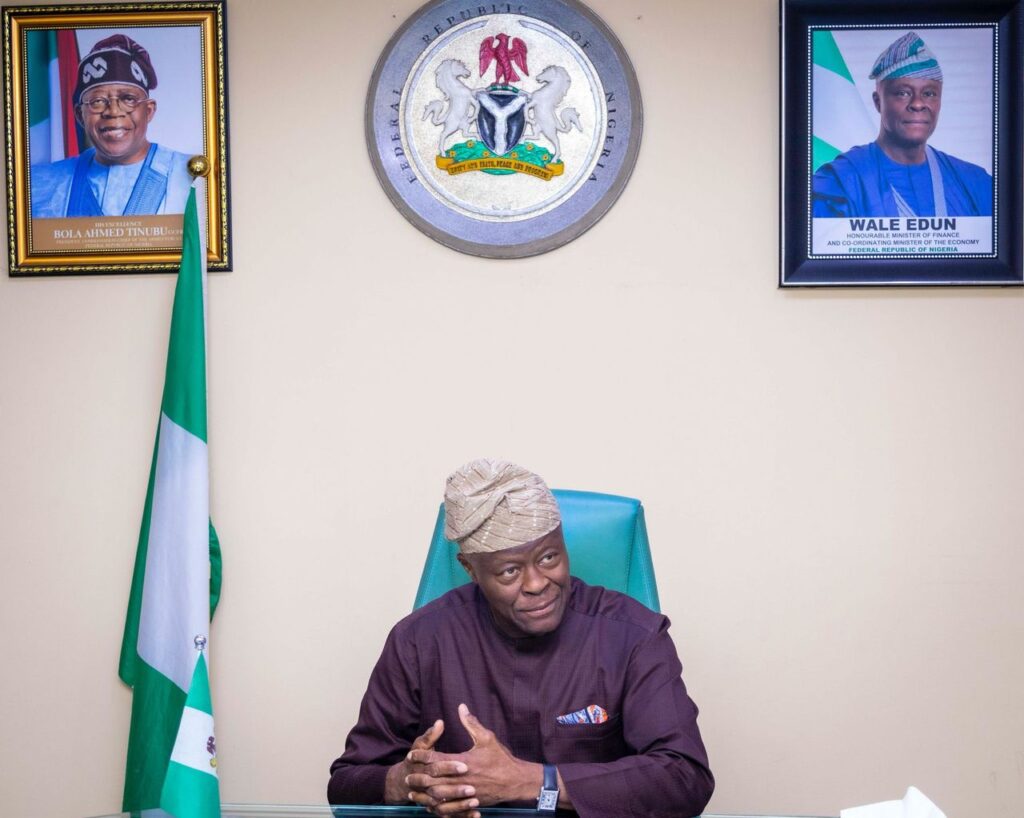
Following the recent drop in July inflation figures, the minister of finance and coordinating minister of the economy Mr. Wale Edun met with his counterpart the governor, central bank of Nigeria (CBN) Mr. Olayemi Cardoso to “strengthen monetary – fiscal coordination”. The finance minister said on Tuesday. In July 2025, the headline inflation rate eased to 21.88% relative to the June 2025 headline inflation rate of 22.22%. The inflation has been on a downward trajectory since march; due to the CBN holding a tight monetary policy rate at 27.5% Edun reaffirmed that close alignment between fiscal and monetary policy is “critical to ensuring inflation is contained,revenues are mobilised efficiently, and credit flows effectively to productive sectors.” He said. Meanwhile, the high-level engagement was also focused on deepening coordination between monetary and fiscal authorities to “sustain macroeconomic stability, strengthen investor confidence, and unlock private sector growth.” Edun emphasized. The Finance Minister said.
Cameroon finance minister granted unlimited access to borrowing
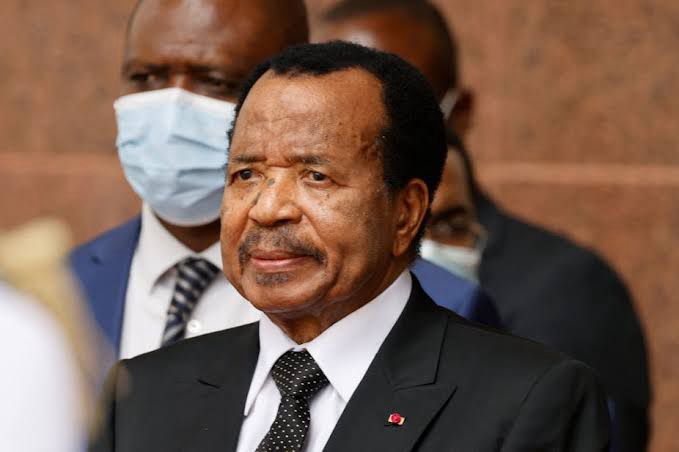
Cameroon’s government has been granted authority to borrow up to 930 billion CFA francs ($1.67 billion U.S dollars) in domestic and external loans, following a presidential decree signed by President Paul Biya. Presidential Decree No. 2025/409, signed on August 18, 2025, authorizes the Minister of Finance to mobilize the funds from a mix of sources, a strategy designed to diversify the government’s financial portfolio and manage currency exposure. The decree outlines the following breakdown for the new debt: This move comes as the Central African nation grapples with a burgeoning debt profile and the need to finance large-scale infrastructure projects. While the additional funds are expected to provide a crucial boost to the economy and address fiscal pressures, they also highlight the government’s increasing reliance on commercial borrowing. The funds are part of a broader strategy to stabilize the national economy, which has seen its budget revised upward to accommodate rising debt service obligations, energy subsidies, and security spending. The borrowing also seeks to clear arrears, a persistent issue that has strained relationships with government contractors and suppliers. Meanwhile, the new loans will add to Cameroon’s existing public debt, which was reported to be around 40% of the country’s GDP by mid-2025. While this remains below the 70% ceiling set by the Central African Economic and Monetary Community (CEMAC), the rapid increase in borrowing has raised concerns about long-term debt sustainability.
Insurance Sector Leads Nigerian Stock Market Rebounds with N60 Billion ($39.1 Million)
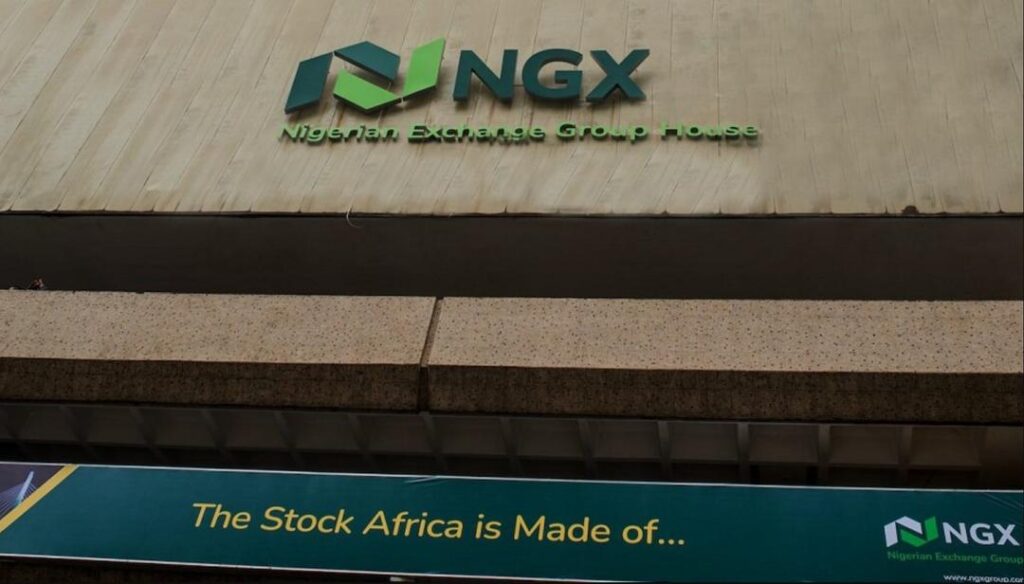
Nwali Chidozie Equities on the Nigerian Exchange (NGX) started the week on a positive trajectory, as investors pocketed a N60 billion Naira ($39.1 million U.S dollar) gain by the close of trading on Monday, reversing the previous week’s losses. “The positive momentum was driven by significant gains in the insurance sector” and a broad-based positive market sentiment. NGX noted in a statement released on Tuesday. Data from the NGX shows the All-Share Index (ASI) climbed by 94.27 points, or 0.07%, to close at 144,722.47. This pushed the market capitalization up to N91.6 trillion ($59.7 billion) from N91.54 trillion ($59.6 billion) recorded last week Friday. Despite this gain, the market still registered a one-week loss of 0.79%, though it maintained a robust four-week gain of 9.78% and an impressive year-to-date gain of 40.61%. Trading activity saw a total of 1.05 billion shares, valued at N15.05 billion ($9.8 million), exchanged in 38,137 deals. While the volume of shares traded declined by 24% compared to the previous session, the turnover and the number of deals saw improvements of 8% and 19%, respectively. The insurance sector was the star performer of the day, with the NGX Insurance Index soaring by 5.26%, contributing to its remarkable year-to-date gain of 98.41%. Other sectoral indices had mixed results. Universal Insurance Company was the most actively traded stock by volume, with 202.2 million shares changing hands. It was followed by Linkage Assurance (77.9 million shares), Lasaco Assurance (66.4 million shares), and Mutual Benefits Assurance (57.8 million shares). In terms of value, GTCO led the charts with trades worth N1.05 billion ($684,300). Zenith Bank followed with N987.76 million ($644,100), Aradel Holdings with N945.58 million ($616,800), AccessCorp with N829.71 million ($541,000), and UBA with N779.15 million ($508,000).
President Tinubu Appoints Opeyemi Agbaje as PenCom Chairman Amidst NLC Ultimatum
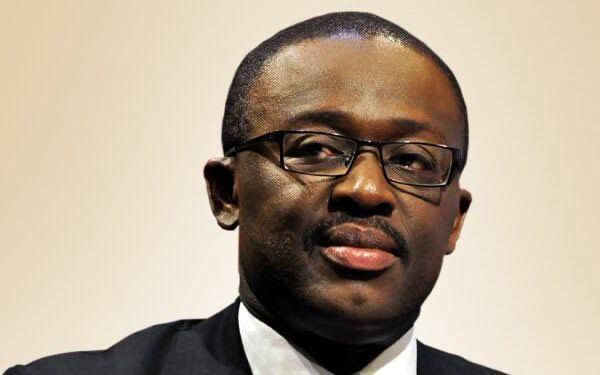
Lagos, August 18 – President Bola Ahmed Tinubu has appointed Mr. Opeyemi Agbaje, a seasoned finance and policy expert, as the new Chairman of the National Pension Commission (PenCom). The appointment comes in the wake of a seven-day ultimatum issued by the national labor congress (NLC) demanding the immediate reconstitution of the PenCom Governing Board. The NLC had threatened a nationwide industrial action if the government failed to act, citing concerns over the governance and oversight of the multi-trillion Naira pension industry. Agbaje’s appointment is seen as a swift response to this pressure, aimed at restoring confidence in the regulatory body. Mr. Agbaje brings a wealth of experience to the role, with a multi-disciplinary career spanning over four decades in law, banking, finance, academia, and business consulting. He is however, best known for his time as a foundation staff member at Guaranty Trust Bank (GTBank), where he rose to the position of Assistant General Manager. PenCom, established by the Pension Reform Act (PRA) 2014, is the primary body responsible for the regulation and supervision of the Nigerian pension industry. Its core mandate is to ensure the effective administration of the pension system, safeguard pension assets, and ensure that retirement benefits are paid to retirees as and when due. However, while Mr. Agbaje appointment is being hailed as a step toward addressing the NLC’s concerns, some stakeholders have raised questions about whether the appointment aligns with the provisions of the relevant laws that govern the pension industry. The official statement from the Presidency is still being awaited to provide full details and context on the appointment and the composition of the full Governing Board.
SARB: climate change makes SA Banks reluctant to lend customers money
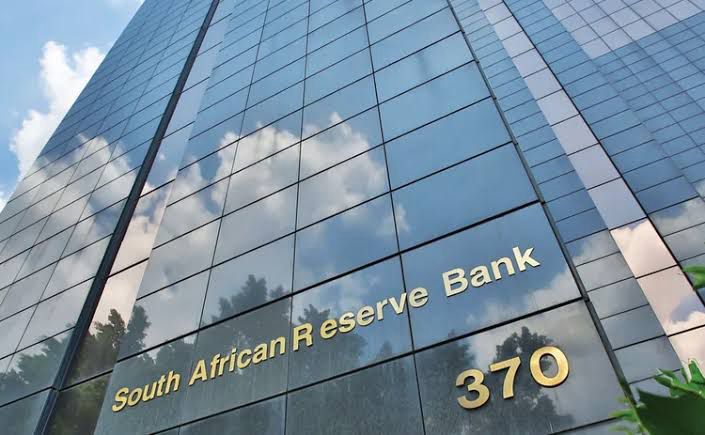
A new study by the South African Reserve Bank (SARB) has revealed that South African banks are becoming increasingly hesitant to lend money, as the growing threat of extreme weather events has heightened the risk of loan defaults. The SARB’s report released on Monday highlights how climate-related physical risks—such as floods, droughts, and storms—are directly impacting the financial sector. According to the study, “climate-related risks, like any other financial risks, can translate into systemic risk,” as these events can cause significant damage to property and infrastructure. This damage, in turn, can lead to a rise in non-performing loans as “households and businesses struggle to repay debts after suffering economic losses.” The report noted. The central bank’s analysis found that banks’ credit risk exposure to companies and individuals vulnerable to climate-related events ranges from 30% to as high as 60%. However, the SARB is now working to ensure the stability of the financial system in the face of escalating climate change impacts. The bank has introduced a Climate Risk Stress Test (CRST) to evaluate the resilience of banks to plausible long-term climate scenarios. The SARB’s deputy governor, Fundi Tshazibana, emphasized this focus, stating, “Where we are focused as central banks is to say there are risks that are associated with climate change, there are risks that are related to extreme weather events, there are risks related to deterioration in nature.” Meanwhile, the study also warns that the tightening of lending standards could have broader implications for the South African economy, making it more difficult for certain sectors to secure financing and invest in new projects.
FirstBank becomes Champs city FC biggest partner, strengthening community initiatives

Nwali Chidozie Champs city football club on Monday announced a new deal with firstbank, a leading financial institution in west Africa. According to a statement from the Enugu state based football academy, the deal “marks a significant milestone in our pursuit of our vision – to speak to humanity and inspire the world through sports”. Champ city said. Firstbank as a lead partner will be providing resources for the football academy to improve and expand its facilities and services which includes: training more Nigerian youngsters, more quality education and coaching for players, improved training and learning environments. The deal also aligns with the club’s community development initiatives, which will encourages more children to leave the streets by redirecting their interests and energy to sports, ultimately making communities safer. “We are very excited to have FirstBank as a lead partner; trusting us with their reputation is a big vote of confidence in our vision.” the President of Champs City, Odinaka Iloh said. Meanwhile, Firstbank is expected to benefit from branding rights, increased visibility, and collaboration in grassroots sports activities from the partnership with the under 13 football academy. “We aim to leverage this partnership to make a significant impact on the lives of the academy participants and all Nigerians youths.” Said Mrs. Olayinka Ijabiyi, Acting Group Head of Marketing and Corporate Communications, FirstBank. The partnership is part of the bank’s longstanding first@sports initiative that has seen strategic partnerships with other sports like basketball, polo, and golf.
Uganda commissions gold mine, vows to halt raw mineral exports

Uganda moves to end the export of its raw natural resources, with President Yoweri Museveni commissioning the Wagagai gold mining and processing project in Busia District. “Under my leadership, we will not export unprocessed minerals, as this undermines our economy.” The Uganda president affirmed in a statement on Saturday. The event marks a significant step in the government’s long-standing policy of adding value to its minerals, a strategy aimed at maximizing national revenue and creating jobs The Wagagai gold mining project, a joint effort with Chinese investors, is set to be a game-changer for Uganda’s economy. The facility boasts a refinery capable of producing gold with 99.9% purity, a level of refinement that will command a significantly higher price on the international market. This local processing is projected to generate over $100 million annually for the East African nation over the next 25 years. Beyond the substantial financial gains, the project is a major boon for job creation. Once fully operational, the mine is expected to create more than 5,000 jobs, providing a much-needed economic stimulus to the Busia region and beyond. The commissioning of the Wagagai mine sends a clear message to both local and international investors: a new era of mining has dawned in Uganda, one that prioritizes value addition and national benefit over the simple extraction and export of raw materials. “By maximising our natural resources, gold, lithium, tea, iron, etc., we can create jobs and industrialize Uganda.” President Museveni emphasized.
Zimbabwe to become a major regional player in steel production

A new $800 million investment by Chinese metals giant Tsingshan Holding Group is set to transform Zimbabwe into Africa’s largest steel producer, dramatically reducing the country’s reliance on imports and fostering a new era of industrialization. The investment, announced by a top company official, will be funneled through Tsingshan’s subsidiary, Dinson Iron and Steel Company (DISCO), to expand its massive steel plant in central Zimbabwe. According to Wilfred Motsi, the project director at Dinson, the funds will be used for the construction of key infrastructure, including new rolling and steel plants, a centering facility, and a new blast furnace. Reuters reported. The expansion is expected to double the plant’s annual production capacity from 600,000 to 1.2 million metric tons of carbon steel, positioning the South African nation as a significant regional supplier. Zimbabwe’s economy, which has long grappled with a substantial steel import bill estimated at $1 billion annually. By producing steel locally, the country stands to conserve valuable foreign currency, improve its balance of trade, and reduce its exposure to volatile international market prices. The Dinson steel plant, which was recently granted Special Economic Zone (SEZ) status, is one of the largest foreign direct investments (FDI) in Zimbabwe’s manufacturing sector. Tsingshan’s broader presence in Zimbabwe includes investments in ferrochrome, coking coal, and lithium mining.
Nigeria’s inflation rate eases to 21.88% in July from 22.22% in June
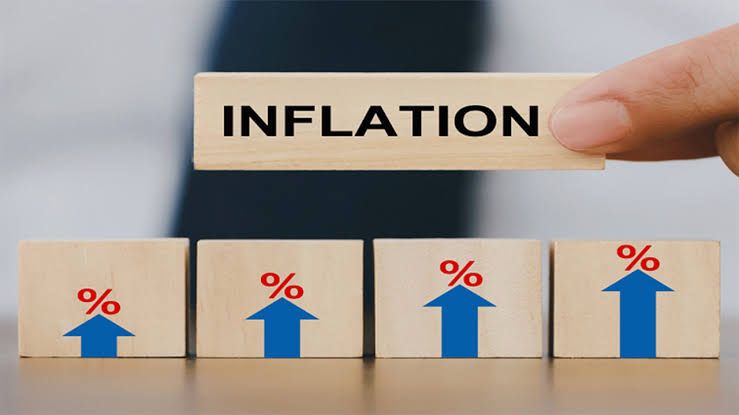
The National Bureau of Statistics (NBS) on Friday released its Consumer Price Index (CPI) and inflation report for July 2025, showing a continuous decrease in the cost of living for Nigerians. “In July 2025, the Headline inflation rate eased to 21.88% relative to the June 2025 headline inflation rate of 22.22%.” NBS noted. Meanwhile on a month-on-month basis, the Headline inflation rate in July 2025 was 1.99%, which was 0.31% higher than the rate recorded in June 2025 (1.68%). Since March 2025 Nigeria’s headline inflation has been on a steady decline, with a reduction in price of commodities and services. Food Inflation Remains High The report highlighted that the food index played a significant role in the overall inflation figure. The food inflation rate on a year-on-year basis was 22.74%. Month-on-month food inflation was 3.12%, a slight decrease from 3.25% in June. This indicates that while the rate of increase in food prices has slowed slightly, they are still rising rapidly and contributing significantly to the financial strain on households. Core Inflation on a downtrend The “All items less farm produce and energy” (Core) index, which measures inflation excluding volatile food and energy prices, also showed an a downward trend on a month-on-month basis– core inflation was 0.97%, a significant drop from 2.46% in June, suggesting that the non-food and non-energy sectors experienced a slower price increase in July. Meanwhile, the report showed an upward trend. On a year-on-year basis, the core inflation rate was 21.33%. Urban vs. Rural Disparity The report also broke down the inflation figures by urban and rural areas, revealing a notable difference. Urban inflation on a year-on-year basis stood at 22.01%, while rural inflation was slightly lower at 21.08%. However, the month-on-month figures showed a different story. The month-on-month urban inflation was 1.86% (down from 2.11% in June), while the month-on-month rural inflation was 2.30% (a sharp increase from 0.63% in June). This suggests that while urban areas are still facing high inflation, rural areas experienced a more accelerated price increase in July. Looking Ahead The CPI figures from the NBS indicate that inflationary pressures remain a key economic challenge for Nigeria. The high cost of food and the persistent rise in overall prices continue to impact the purchasing power of citizens. The government and the Central Bank of Nigeria are expected to continue monitoring these trends and implementing measures to stabilize prices and support economic growth.
Nigeria on the Path to 7% Annual GDP Growth – Finance Minister
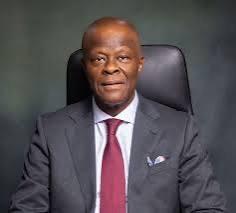
The Nigerian government is charting a course toward “renewed stability and accelerated growth,” targeting a robust 7% annual GDP growth, according to the Honourable Minister of Finance and Coordinating Minister of the Economy, Mr. Wale Edun. According to a statement from the finance ministry on Thursday, the Minister outlined a strategic economic vision centered on private sector-led investment, job creation, and improved public services. Edun stated that the government’s economic policy is anchored on two key objectives. The first is to foster a stable macroeconomic environment that encourages private sector expansion, while the second focuses on building stronger government savings to fuel public investment in vital sectors such as education, health, and infrastructure. “Our task is to translate this into tangible improvements in the lives of Nigerians,” Edun said, emphasizing the goal of creating more and better-paying jobs and delivering superior public services. The Minister highlighted recent positive economic indicators, suggesting that the government’s reforms are beginning to yield results. He noted that Nigeria’s GDP growth reached 3.13% in the first quarter of 2025, a significant increase from 2.3% in the same period of 2024. This growth, he added, is being driven by the diversification of the economy, with sectors like trade, communications, and construction showing strong performance; figures consistent with data from the National Bureau of Statistics (NBS) which attributed the growth to a robust services sector. Furthermore, Edun announced that inflation has moderated, reaching 22.22% as of June 2025, marking the third consecutive month of decline. This moderation is supported by a stable foreign exchange market and a tighter monetary policy from the Central Bank of Nigeria (CBN). The government’s commitment to fiscal discipline and structural reforms is designed to further reduce inflation, lower the cost of capital for businesses, and increase the purchasing power of households. In a move to build investor confidence and ensure effective resource management, the government has settled outstanding capital budget obligations and is prioritizing spending on critical sectors. The Minister also revealed that Nigeria’s foreign exchange reserves stood at approximately $39 billion in July 2025. This, according to a recent communique from the CBN’s Monetary Policy Committee, provides a healthy import cover. To achieve the ambitious 7% annual GDP growth target, the government’s strategy includes implementing policies that directly support private sector expansion, investing in key infrastructure, and promoting agricultural development to boost food production and security. “We are committed to a coordinated fiscal and monetary policy framework that can substantially and sustainably reduce inflation,” Edun affirmed.


